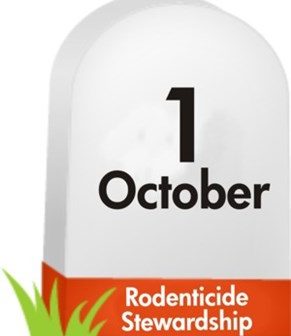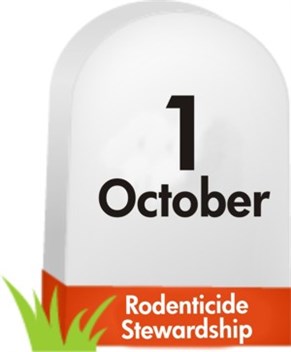From 1 October 2016 anyone purchasing professional rodenticides for use outdoors will need to show either a stewardship approved certificate of competence or, as an interim measure for farmers, a document confirming membership of an approved farm assurance scheme.
Without such documentation all sellers, including those online, will be prohibited from completing the sale. This is because, from that date, only products bearing the new stewardship labels can be sold. As pest professionals know the product label is legally binding. Up until now the information on product labels has focussed on the user. Stewardship labelled rodenticides however place new duties on suppliers, as follows:.
|
“When this product is supplied to a user for the control of rodents, it shall only be supplied to a professional user holding certification demonstrating compliance with UK rodenticide stewardship regime requirements.” This is an important milestone in the implementation of the UK rodenticide stewardship regime as it will make it extremely difficult for untrained users to get their hands on professional rodenticide products. But, as the Campaign for Responsible Rodenticide Use (CRRU) UK chairman Dr Alan Buckle says it’s not the end of the story. The way rodenticides are used must change if we are to reduce the occurrence of residues in wildlife. For many years it was thought best practice to set out bait points on farms and shooting estates as well as around the perimeter of sites such as food manufacturing premises and then keep them permanently topped up with rodenticide. But, as Dr Buckle says: “We now believe this practice, at least in part, is responsible for the contamination of wildlife that we now see so widely in the UK. “Of course, there is no risk if rodenticides are not used. So it must become high priority in all outdoor locations and particularly rural sites, to make them as inhospitable as possible to rodents. This is done by reducing harbourage and preventing access to foodstuffs. It is simply not acceptable to provide ‘bed and board’ for rodents, then attempt to solve the problem by repeatedly poisoning them with rodenticides.” |
|
|
|
Possible bargains? |
||




